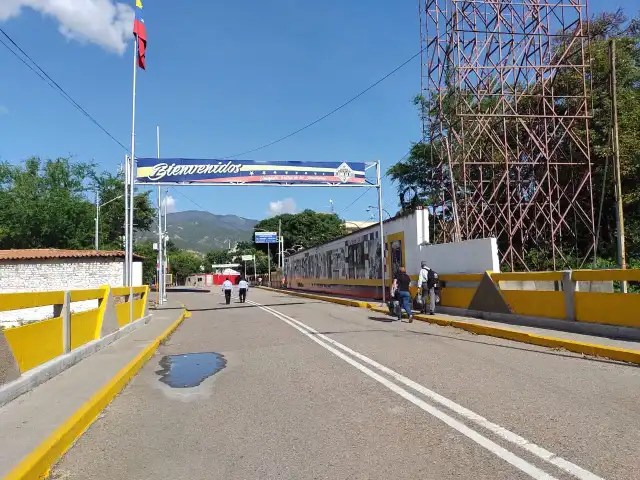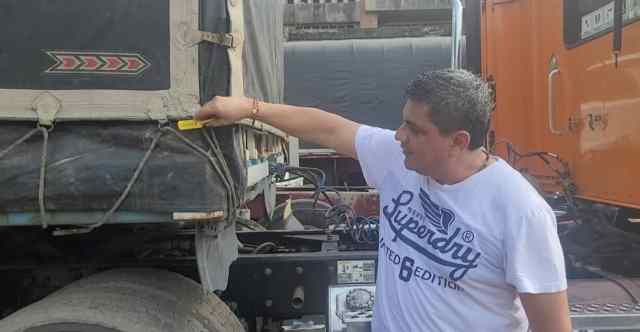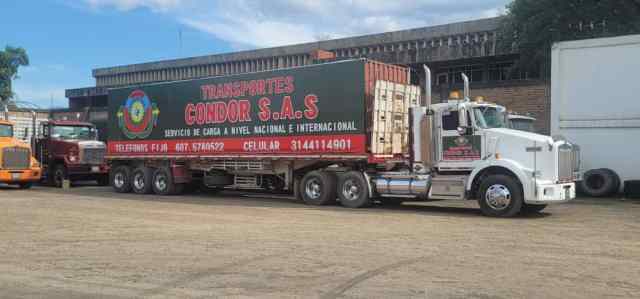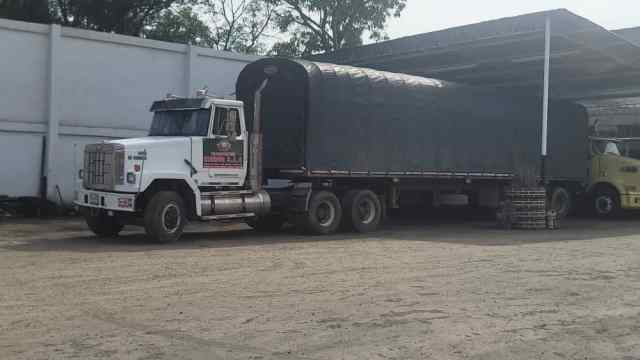
After more than three and a half years of the total paralysis of formal commerce through the international bridges that join Táchira, Venezuela, and Norte de Santander, Colombia, it is expected that in the next few hours commercial operations through this border will be reestablished. Pedestrian crossing will be restricted from 9:00 am to 12:00 pm. Authorities from both countries will be present at the binational crossings during the reopening.
By Luz Dary Depablos / Correspondent LaPatilla.com
“We will exchange greetings with the Venezuelan ministers and authorities. The anthems of our two countries will be played and later the tractor trailers that are programmed to cross will pass, may it never be closed again,” said Germán Umaña, Minister of Commerce, Industry and Tourism of Colombia on his tour of the ‘Simón Bolívar’ international bridge.
Likewise, Víctor Bautista, Secretary of Borders of the Norte de SantanderDepartment, reported that due to the commercial reopening, the pedestrian crossing of international bridges will be restricted this morning in order to “protect people and while there is an organized crossing.”
Silvano Serrano, Governor of Norte de Santander, stated that due to the reestablishment of commercial operations through border crossings, school classes will be suspended this Monday in this department, in addition to maintaining aid to Venezuelan migrants, mainly in terms of health, “Just as we have been doing at the Erasmo Meoz Hospital.”
Time And Money Will Be Saved By Entrepreneurs At The Border

“The freight fee from Cartagena to Maicao is worth 22 million pesos (5,500 dollars per truckload) and it takes about 32 hours to arrive. Now a transfer was made from the free zone of Cartagena to the free zone of Cúcuta saving 10 million pesos (2,500 dollars) in freight charges and it only takes 14 hours. So the savings are significant both in time and money,” explained Yezit Sarmiento, manager of a Customs Agency in Cúcuta, who will carry out international customs transit operations for polyethylene.
Mr. Sarmiento recalled that as a result of the paralysis of international trade between the two countries, 58 Customs Agencies were closed in Cúcuta. “The few that remain in Norte de Santander are because we receive cargo through Cartagena and Maicao. Also the customs alternative is to take the products to Venezuela through Ipiales, Ecuador. We managed to survive because of that, because we had other alternatives. The other companies did not have that and had to close.

The Colombian customs officer noted that the activation of customs, trading companies, warehouses and transportation, allowed only in the city of Cúcuta the reactivation of approximately 1,200 formal jobs, all related to the commercial resumption of transit.
He also pointed out that a well-known chain of supermarkets in the Venezuelan Andes, which imported toilet paper through Maicao (Zulia), as well as a plastics company, from now on will cross their merchandise through the Táchira border, that is, “they will no longer have go around”.
The goods that are going to be distributed in Táchira and Mérida are going to return to the binational crossings of Norte de Santander, and those that are going to de delivered to cities in Zulia State, “will go through Maicao or through La Guajira,” he indicated.
Yezyt Sarmiento also urged the Colombian Customs Fiscal Police to tighten controls against smuggling. In addition, he remarked that the Venezuelan State will benefit from a 16% tax, which is completely evaded when the merchandise passes through the illegal “trochas” (trails).

Diego Bohórquez, manager of an international cargo transport company in Cúcuta, where the first four trucks that will cross to Venezuela in the next few hours loaded with toilet paper, napkins, plastic cups and medical supplies, were guarded, stated that “the operating costs are reduced between 15% and 20%. It is an advantage for exporters and importers that operating expenses are reduced.”
A few hours after the reopening of the border, on the Venezuelan side after 11:00 at night on Sunday 25th, they were still painting and repairing streets and avenues in the border municipalities. The merchandise that will be exported to Colombian territory has not yet been determined. This caused doubts that arose at the last minute, since the Chavista governor, Freddy Bernal, had announced that coal, strawberries and coffee would be exported. However, it was unofficially known in advance that these products lack all the necessary permits to cross over.

